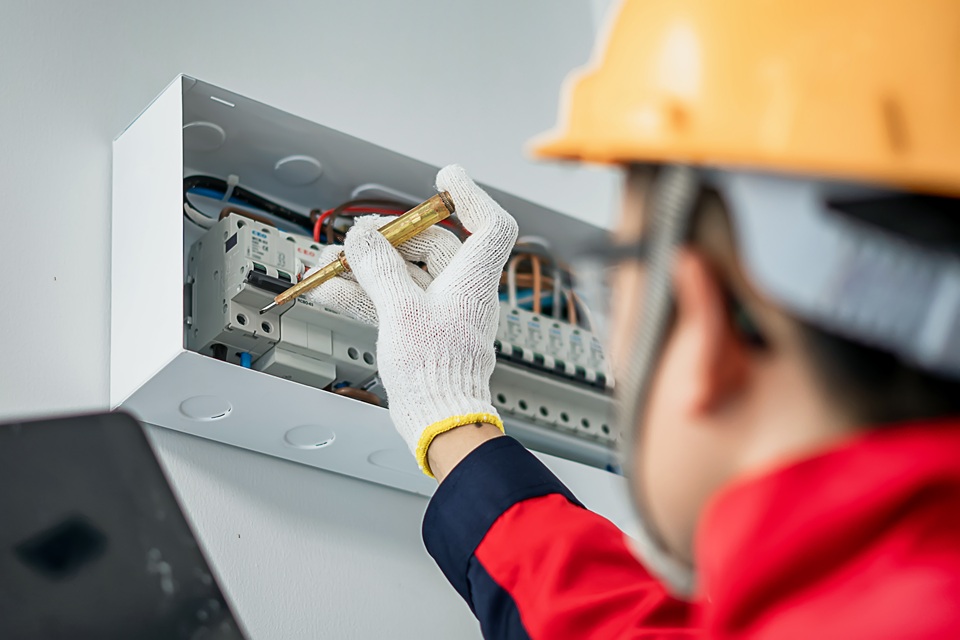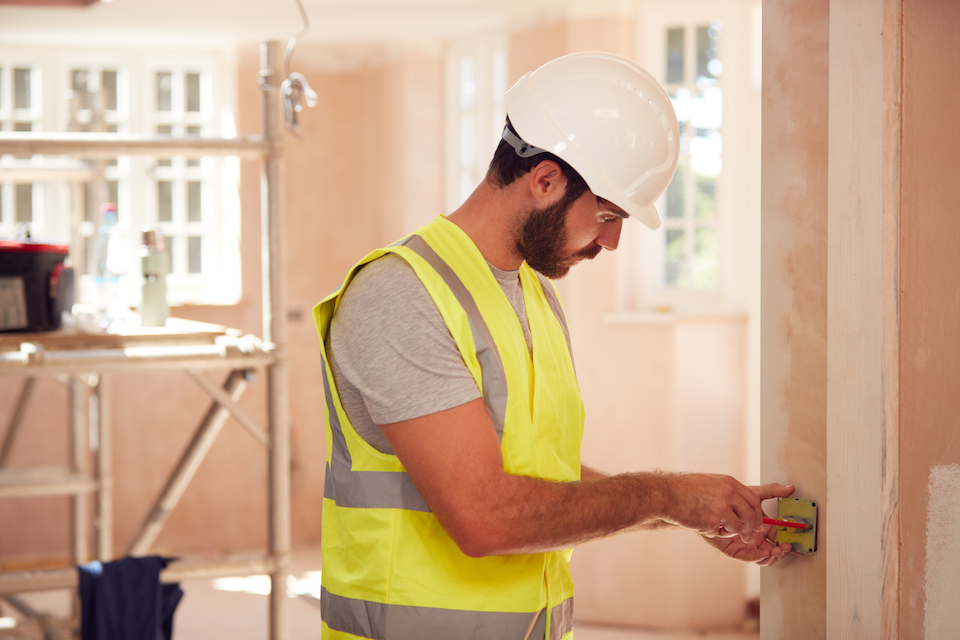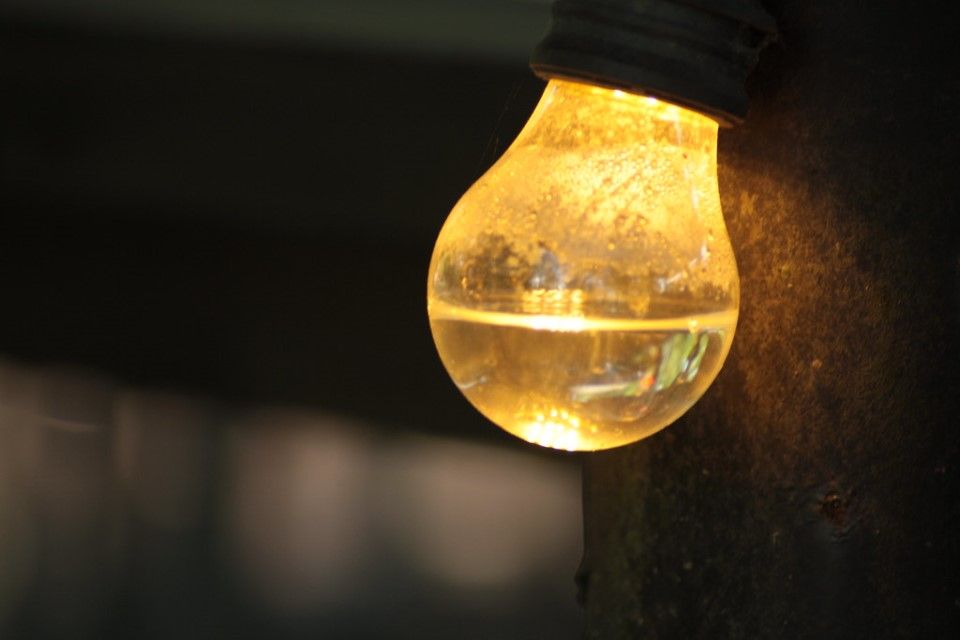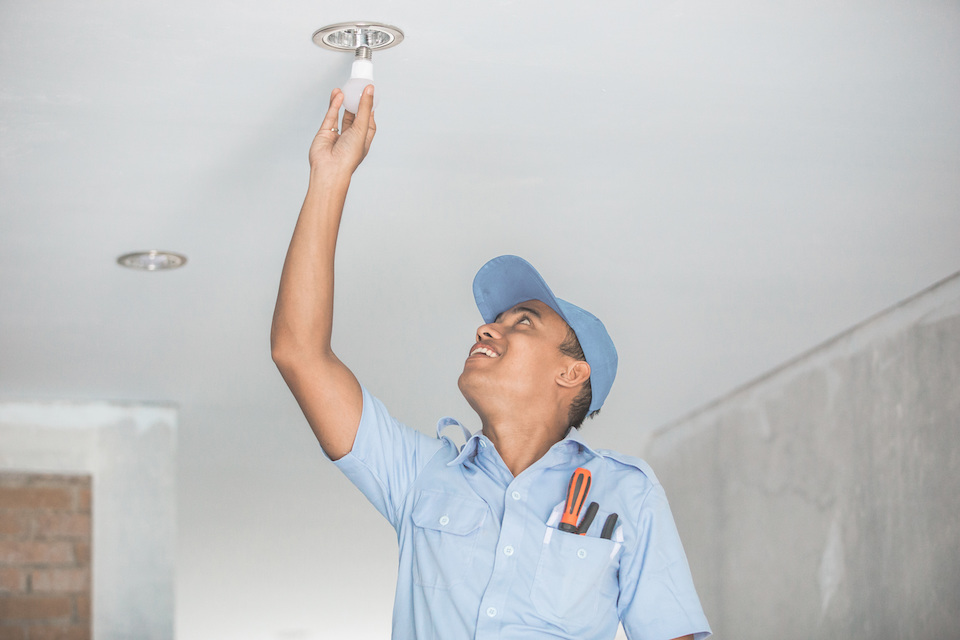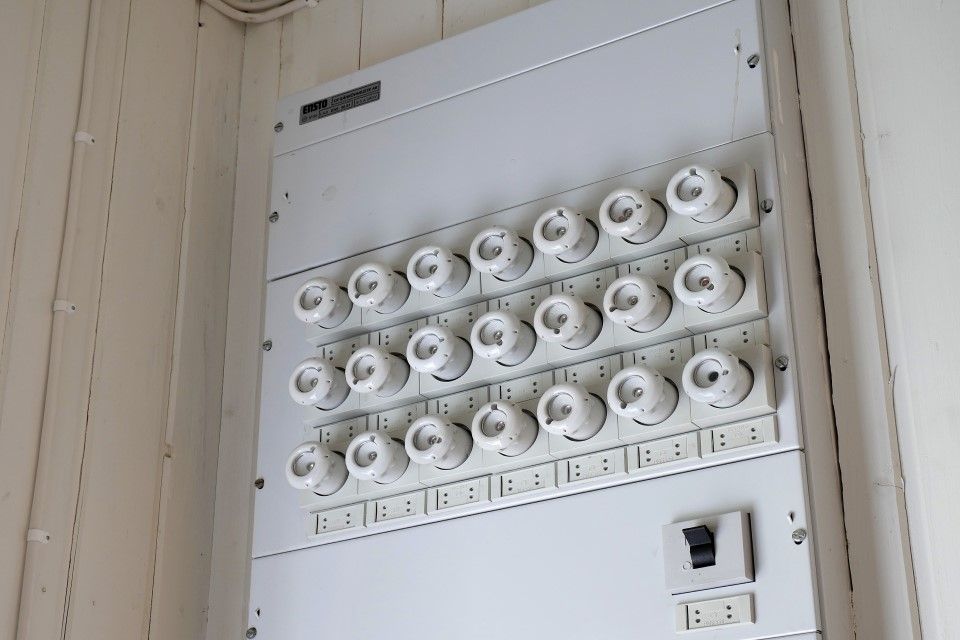What is an EICR Certificate?
An Electrical Installation Condition Report, also known as an EICR, is a crucial safety check that is designed to assess the condition of a property’s electrical systems.
The thorough inspection reviews all of the fixed wiring in a home or building, including the fuse boards, sockets, switches and circuits to ensure that they meet the relevant safety standards for modern buildings.
For homeowners, an EICR offers comfort in the knowledge that the electrical systems in their home are performing as they should, and more importantly, are safe. An EICR can identify any potential hazards, such as overloaded circuits, faulty wiring and outdated components that may need replacing.
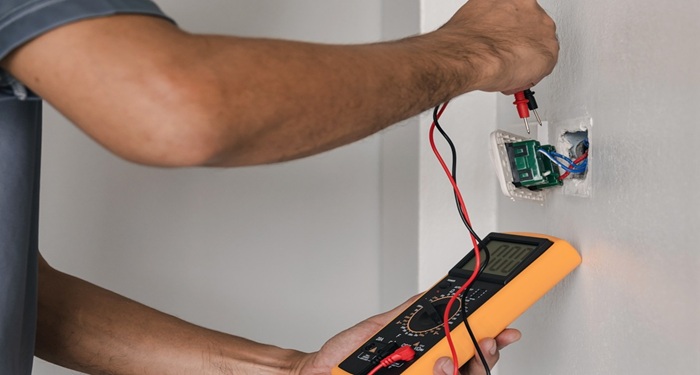
From the perspective of landlords, the law ascertains that rental properties in England must have a valid electrical safety certificate, and inspections must also be carried out every five years. If you fail to comply with this regulation, you will be subject to heavy fines and lose the ability to rent your property.
Businesses are duty-bound to comply with these legislations too, with EICRs proving vital for compliance with health and safety legislations. Ultimately, regardless of the building type or use, a valid EICR protects the inhabitants and the building itself from any potential fires or shocks.
So, that’s why an EICR is so important - but how much does it cost? For most domestic properties, the EICR certificate cost typically falls between £100 and £300, depending on the size, age, and location of the property.
EICR Certificate Prices
The cost of obtaining an EICR certificate can vary based on a few factors, but most notably, the type and size of the property that is being inspected. For example, small flats and apartments have a much smaller electricity network within them, and in turn, fewer sockets and circuits to review.
On the other hand, large houses and commercial buildings will have many more circuits and sockets to check, and a much vaster electrical network to inspect, meaning that the cost of the overall job will be much higher.
Here is a general breakdown of average costs by property type:
| Property Type | Average cost of EICR (£) |
|---|---|
| 1 Bedroom Flat | £100 - £150 |
| 2 Bedroom Flat | £120 - £180 |
| 3 Bedroom House | £150 - £250 |
| 4 Bedroom House | £200 - £300 |
| Small Commercial Building | £250 - £350 |
Of course, these prices are only averages, and the actual price will depend on a few key factors. Location is one of the biggest impact elements of the cost of an EICR certificate, with properties in large cities like London attracting much higher costs due to the higher cost of living in the area.
The opposite is true for small towns and villages in the North.
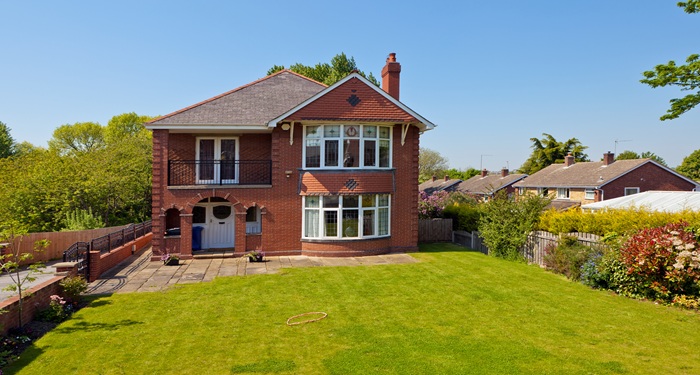
As with any trade work, urgency plays a big part in the overall cost of the certification. If you require a last-minute inspection or an appointment at unsociable hours, you may have to pay a surcharge for the added elements.
Another impacting factor is the age and the condition of your building or property, with older homes usually having much more outdated and complex wiring systems, which take longer to inspect and usually throw up more problems than modern systems.
What Are the Additional Costs of Getting an EICR?
The cost of an EICR itself isn’t too much of a sticking point. However, the other potential costs that can come from the inspection are usually the most expensive element.
These additional expenses can vary depending on what the inspection reveals and whether your property complies with current safety standards. Here are some common examples:
Remedial Work Costs
One of the most common costs following an EICR inspection is remedial work. If the electrician conducting the inspection determines that your electrical systems are unsafe, they will list the reasons why, and in many cases, the issues will need to be rectified before a certificate can be issued, particularly if you are a landlord.
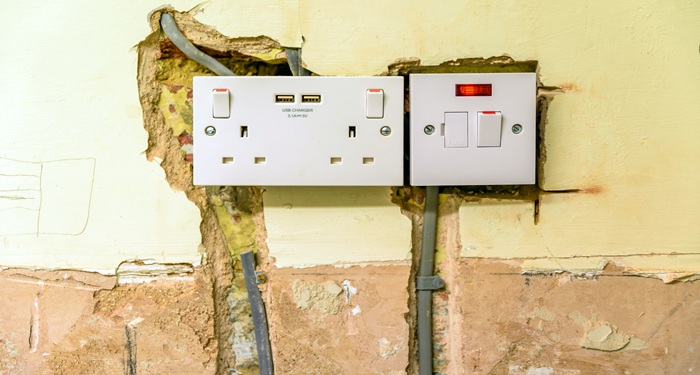
Minor repairs, such as replacing faulty sockets or switches, might cost between £50 and £100, with more complex issues, such as replacing a consumer unit, ranging from £400 to £800.
In those cases where the wiring is significantly outdated or unsafe, a partial or full rewire may be recommended, which could cost anywhere from £1,500 to £6,000, depending on the size of your property.
You can learn more about these types of repair costs in our detailed guide on rewiring a house.
Re-Inspection Fees
Once the repair work has been done following your inspection, you may be required to have your home re-inspected to ensure that the repairs made have been adequate to make the system safe. This is often referred to as a "confirmation of remedial works" inspection, and it ensures that your installation now meets the required standards.
In the majority of cases, the cost for a re-inspection is lower than the initial inspection, and typically ranges between £50 and £100. However, the final price may depend on how many issues need to be rectified and how extensive the original problems were.
Out-of-Hours Charges
If you require work outside of a normal house, like in the evenings or on weekends, you can expect to pay a premium on top of the usual prices, usually an additional £20 to £80 on top of the base cost.
It’s a good idea to always confirm the total price before committing to the work, especially when booking outside of normal working hours.
Certification for Business Properties
Looking at EICRs for business owners, getting an electrical condition report is crucial in order to comply with workplace health and safety regulations. These reports and inspections differ slightly from general EICR, especially for premises with large systems like restaurants or retail units.
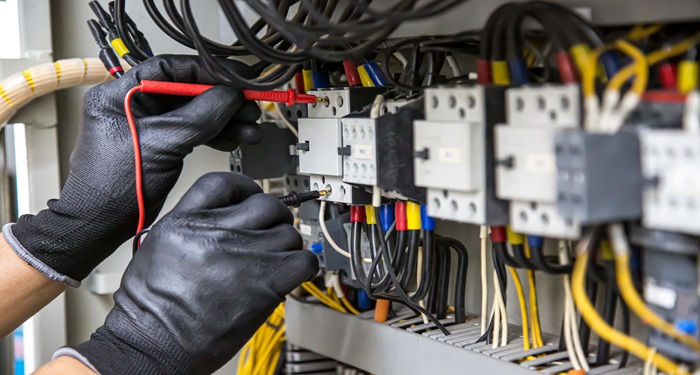
Small commercial premises might pay between £250 and £500 for an EICR, while medium to large business properties could see costs rise to £1,000 or more, particularly if there are multiple distribution boards or three-phase electrical systems in place.
Tradesmen's Costs for Carrying Out an EICR
You will need to hire a qualified electrician to carry out the EICR inspection and certification on your home, and the price they charge hinges on the time it will take to complete the inspection, the expertise of the person you are hiring and the location you live in.
The majority of electricians charge either by the hour or by the job.
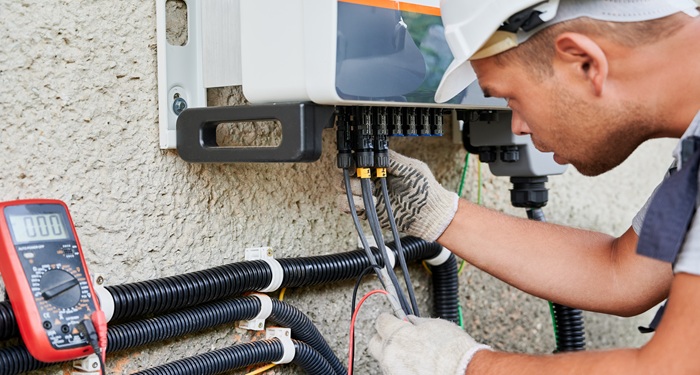
On average, the hourly rate for qualified electricians ranges from £40 to £70, with day rates coming in at anywhere between £200 and £300. However, as mentioned, these prices will vary depending on your location and the complexity of your home or building.
The cost of the EICR work will include the full inspection of your property’s electrical system, full testing of all circuits, switches and sockets, and the EICR certification written report. The electrician will also classify any faults found on your electrical network into categories ranging from C1 to C3, with C1 being immediate danger, and C3 being non-dangerous.
If there are any hard-to-access areas of your home or the electrician encounters any unforeseen issues, the cost of the job may rise. For example, properties with concealed wiring, limited access to fuse boards, or poorly maintained systems may take longer to inspect, which could increase the overall cost.
How Long Does an EICR Take?
The total time it takes to complete an EICR depends mainly on the size and complexity of the building or home.
For example, a small one-bedroom flat will almost certainly have a single fuse board, meaning that it should only take around an hour to inspect. On the other hand, a four-bedroom detached with multiple distribution boards would take several hours to inspect properly.
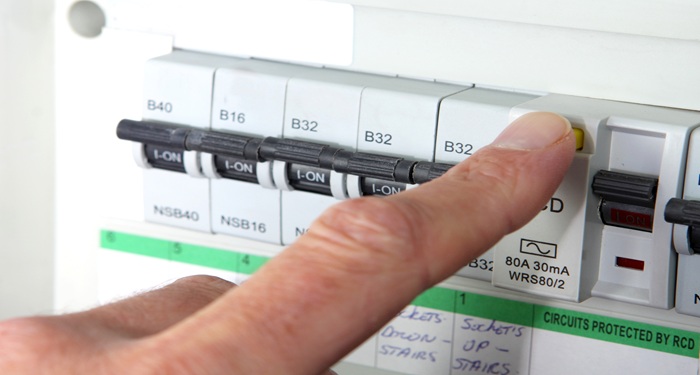
Here’s a general guideline:
| Property Type | Average Time |
|---|---|
| 1 Bedroom Flat | 1 - 2 hours |
| 2 Bedroom Flat | 2 - 2.5 hours |
| 3 Bedroom House | 2.5 - 3.5 hours |
| 4 Bedroom House | 3 - 4 hours |
| Small Commercial Building | 4 - 6 hours |
Of course, several factors will have an impact on the actual time it takes, mainly the number of circuits and the overall condition of the wiring. Older properties often take longer to inspect, as electricians may need to conduct more detailed testing or work around outdated systems.
Types of EICR Reports
There are a few different types of EICR certificates, each of which refers to the specific type of property being inspected. Each of them is tailored to the specific safety requirements of the property, and it’s crucial that you have the correct inspection completed.
Domestic EICR
This type of report is the most commonly used for homeowners and landlords and assesses the condition of electrical circuits and networks inside residential properties.
The advice for homeowners is to get an updated EICR completed every ten years. However, if you are a landlord, you are legally required to complete one every five years and at the start of every tenancy.
Commercial EICR
For businesses with fixed property, like offices and shops, a commercial EICR is required to ensure that businesses comply with the Electricity at Work Regulations. Reports should be updated at least every five years, although more frequent checks may be necessary depending on usage.
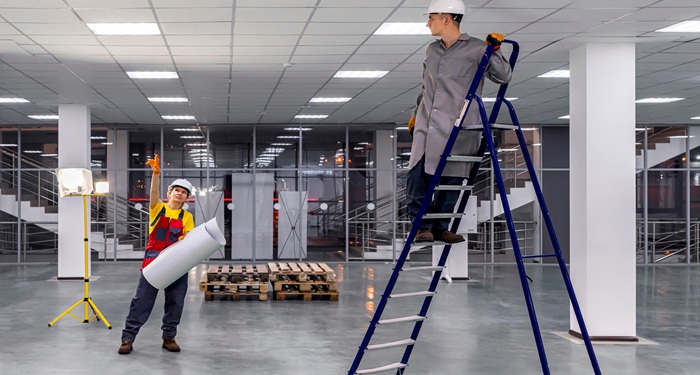
Industrial EICR
For larger, more complex sites such as warehouses and manufacturing facilities, an industrial EICR is required. These properties often have high-capacity electrical systems and need more extensive inspections. The cost is typically higher due to the time and specialist knowledge required.
How Much Does It Cost to Rectify Issues Found in an EICR?
If your EICR report identifies faults on your home’s electrical network, you must carry out the repair work as soon as possible.
Now, the cost of these repairs can vary quite greatly, and the electrician who has completed your EICR should be able to advise on the likely cost; however, to offer some common issues, we’ve included average costs here.
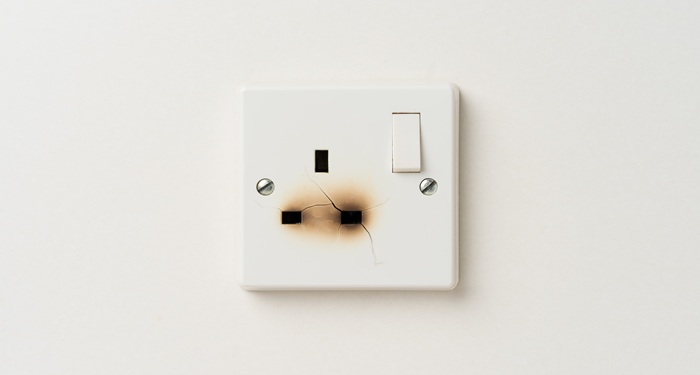
Simple repairs on things like worn or broken sockets and switches are fairly inexpensive, and cost between £50 and £100 to put right.
However, for larger issues like replacing a consumer unit or installing some RCD protection, the cost can range from £400 to £600. In more serious cases, a full rewire may be necessary, which could set you back £3,000 to £6,000 depending on your property’s size.
You may also need to consider the cost of removing and disposing of old electrical components. Some electricians will include this in their quote, but others may charge an additional £20 to £50.
Why Should I Get an Electrical Safety Check?
An electrical safety check is a crucial aspect of ensuring your home is safe for everyone who resides within it. For homeowners, a regular EICR can reveal hidden issues and ensure that your system is working as it should be.
Not only that, but if you plan to sell your home, an up-to-date EICR can also reassure potential buyers and reduce delays during the conveyancing process.
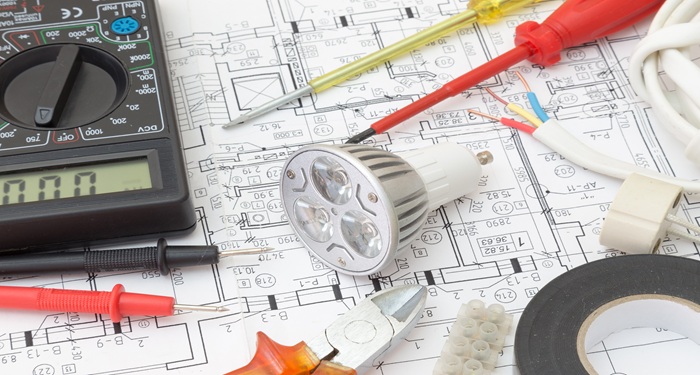
In the case of landlords, they have a legal obligation to carry out these checks at least every five years, and failing to provide a valid electrical safety certificate could result in fines of up to £30,000 and may void your landlord insurance.
In fact, some insurance providers even require an EICR to be completed before issuing or renewing a policy.
What Does an Electrical Safety Check Involve?
During an EICR, the electrician will carry out a thorough visual and physical inspection of your property’s electrical installations. They will test fuse boards, wiring, plug sockets, light fittings, and other fixed components to check for damage, wear and tear, or potential safety issues.
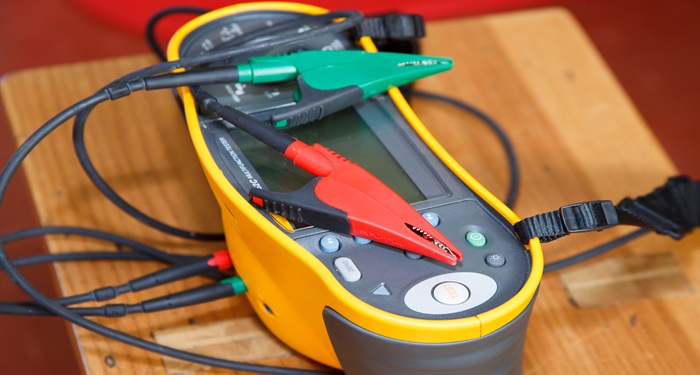
Using specialised testing equipment, the electrician will assess whether the circuits are overloaded, whether proper earthing is in place, and whether there are any signs of deterioration. The inspection may also involve temporarily disconnecting some systems to conduct tests under realistic loads.
Once the inspection is complete, the electrician will provide a detailed report. If the installation is found to be safe, it will be marked as "Satisfactory." If issues are found, the report will list them under different codes:
- C1: Danger present – immediate action required
- C2: Potentially dangerous – urgent remedial action advised
- C3: Improvement recommended – not urgent, but should be addressed in future
FAQs
Q: What is an EICR certificate?
A: An EICR certificate is an official document that verifies the safety and condition of a property’s electrical installation after a professional inspection.
Q: How often do I need to get an EICR?
A: Homeowners should get an EICR every 10 years. Landlords are required by law to obtain one every five years or at the start of a new tenancy.
Q: Is an EICR legally required?
A: Yes, for landlords in England, a valid electrical safety certificate is a legal requirement. While not mandatory for homeowners, it is strongly recommended.
Q: What happens if I fail my EICR?
A: If your report is marked as “Unsatisfactory,” you will need to arrange for the necessary repairs and have a follow-up inspection to confirm the issues have been fixed.
Q: How do I prepare for an EICR inspection?
A: Make sure your electrician can access fuse boards, sockets, and switches. Move furniture and clear pathways to help speed up the process.

